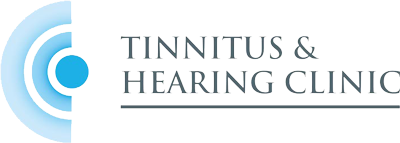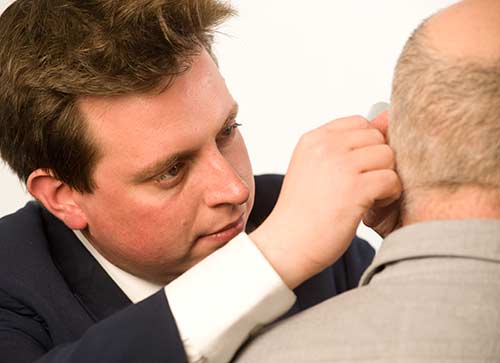Three specialists from the leading provider of tinnitus treatments in the UK have joined experts from Whipps Cross University Hospital to deliver a paper on the causes, assessment, and management of a less common but more troublesome form of the condition.
Chief Audiologist, Mark Williams, Consultant ENT Surgeon, Nitesh Patel, and Arts Therapist Julianne Mullen from The Tinnitus Clinic worked alongside ENT and Radiology experts from Whipps Cross to review how best to diagnose and resolve pathology that is associated with pulsatile tinnitus.
Pulsatile tinnitus sounds like a ‘whooshing’ or ‘thumping’ in the ears, in synch with the heartbeat. It can be very troublesome and can worsen in daily activities like exercising or drinking coffee or alcohol.
Those who also have regular tinnitus often consider pulsatile tinnitus the more bothersome of the two. It is more uncommon, with less than 10% of tinnitus patients suffering from pulsatile tinnitus.
The Paper, ‘Pulsatile tinnitus: a review’ reports that the most common causes of pulsatile tinnitus are atherosclerosis of the carotid arteries, idiopathic intracranial Hypertension, and Glomus tumours.
The review goes on to suggest that the first line imaging for pulsatile tinnitus should be a delayed Computed Tomography (CT) Angiographic protocol and that for the vast majority of pulsatile tinnitus with no identifiable cause, sound therapy is an effective management option.
Chief Audiologist at The Tinnitus Clinic, Mark Williams, said: “This paper reviews the main causes of pulsatile tinnitus, current diagnosis and practice.
“With this type of tinnitus in particular, the chances of finding a specific cause are more likely than in non-pulsatile form.
“Following our research, we believe it’s important to investigate patients with pulsatile tinnitus radiologically to rule out significant causes, and we recommend CT angiography as the first-line imaging modality.
“Where no cause is found, and patients have persistent bothersome symptoms, consideration should be given for treatment with sound therapy and cognitive behavioural therapy.”
Mark continued: “We hope that our research can help to raise awareness and progress understanding around pulsatile tinnitus.”
For further information, call The Tinnitus Clinic on 0800 030 6617, visit www.thetinnitusclinic.co.uk or e-mail info@thetinnitusclinic.co.uk
Download the full paper as a PDF
Pulsatile Tinnitus: a review Download




